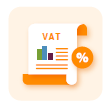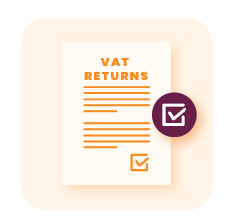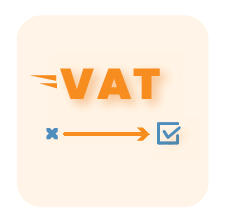Invoicing in the UK
According to Regulation 13 of the VAT Regulations 1995, businesses registered for VAT in the UK are generally obligated to provide VAT invoices to taxable persons for all their taxable supplies within the UK. Failure to do so, when requested by a VAT-registered customer, may result in fines.
However, if the supply consists solely of zero-rated items or exempt items within the UK, a VAT invoice is not required.
Learn more about invoice requirements in the UK in our comprehensive guide.
Selling in the UK?
Electronic VAT invoice
In UK, VAT invoices can be issued electronically, but it is not mandatory. Taxpayers can issue electronic VAT invoices, provided they have obtained prior agreement from the recipient. It is generally not permitted to issue both paper and electronic invoices for the same supply.
When issuing electronic invoices, certain technical requirements must be met to ensure the authenticity of their origin, the integrity of the data, and the legibility of their content. Taxpayers can comply with these requirements by using a qualified electronic signature or Electronic Data Interchange (EDI) methods. These measures help maintain the security and reliability of electronic invoicing processes.
Self-Invoicing
In the UK, under certain conditions like the mutual adoption of a self-billing system by both the supplier and recipient, this is allowed. The arrangement must meet the criteria set out in HMRC’s Self-billing guidance (VAT Notice 700/62), and there’s no need for HMRC’s direct approval.
Last Updated: 30/08/2023
Disclaimer
The information provided by Global VAT Compliance B.V. on this webpage is intended for general informational purposes only. Global VAT Compliance B.V. is not responsible for the accuracy of the information on these pages, and cannot be held liable for claims or losses deriving from the use of this information. If you wish to receive VAT related information please contact our experts at support@gvc.tax







